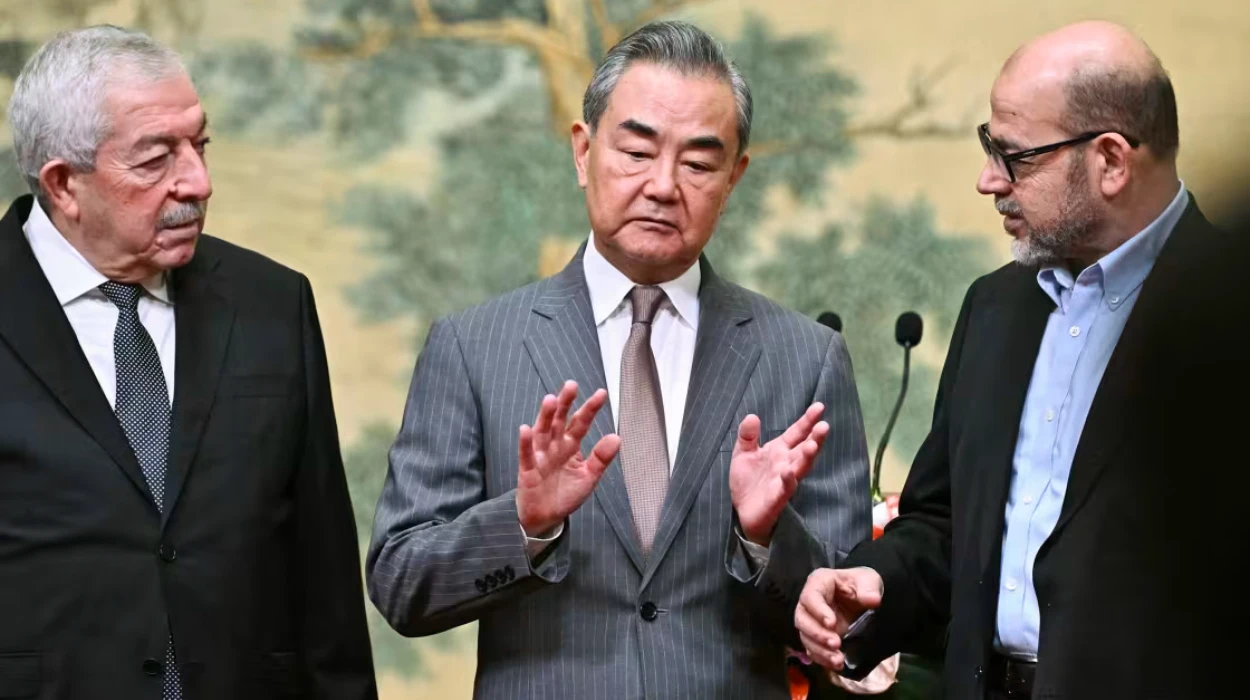Palestine (Transatlantic Today) – Leading representatives of Hamas and Fatah signed an important declaration in Beijing on Tuesday aimed at overcoming a decades-long division over the ongoing conflict with Israel in the Gaza Strip. The “Beijing Declaration on Ending Division and Strengthening Palestinian National Unity” was announced after three days of meetings. China’s Foreign Minister Wang Yi described it as a “historic moment for the cause of Palestine’s liberation”
The agreement portrays China as an adversary of the United States and highlights its expanding diplomatic influence in the Middle East. China had already restored diplomatic relations between Iran and Saudi Arabia last year by effectively mediating their rapprochement following protracted hostilities.
Key Provisions of the Declaration
The eight-point declaration includes forming a temporary national unity government agreed upon by Palestinian factions. This government will exercise authority over all Palestinian territories to unify institutions and prepare for general elections. It also emphasizes resistance against displacement in Gaza, the West Bank, and Jerusalem, and opposes settlement expansions as per U.N. resolutions and international law.
According to NBCNews, a Palestinian official stressed the importance of practical implementation. Analysts, like Jon Alterman from the Center for Strategic and International Studies, caution about the acceptance of this arrangement by key players such as the United States, Israel, and Europe.
International Reactions
The Biden administration has proposed a plan for a permanent ceasefire in Gaza, the release of hostages, and post-war reconstruction, envisioning a revamped Palestinian Authority to govern Gaza. However, Israel has rejected this idea without offering a credible alternative.
Although China is not actively involved in the US-led cease-fire negotiations, it wishes to contribute to post-war reconstruction and has indicated interest in hosting an international peace conference. The Palestinian Authority’s envoy to China, Fariz Mehdawi, stated that hosting such talks would not represent a risk to China and may even strengthen its diplomatic status.
The takeover of Gaza by Hamas in 2007 caused the divide between Fatah and Hamas to widen. Since this division between Hamas and Fatah, the Palestinian Authority, which is backed by Fatah, has ruled over portions of the West Bank, but some are questioning its validity. The West has impeded efforts at reconciliation by refusing to recognize any administration, including Hamas, until it recognizes Israel.
Maria Papageorgiou, a lecturer in politics and international relations, pointed out that successful mediation between Hamas and Fatah would be a significant diplomatic achievement for China. The agreement provides for Hamas to join the Fatah-dominated Palestine Liberation Organisation,, recognizing the PLO as the sole legitimate representative of the Palestinian people.
China’s involvement in Palestinian unity talks reflects its broader strategy to be present in international diplomacy. By facilitating this agreement, China aims to secure a major role in any future resolution of the Israeli-Palestinian conflict, demonstrating its growing influence on the global stage.


























